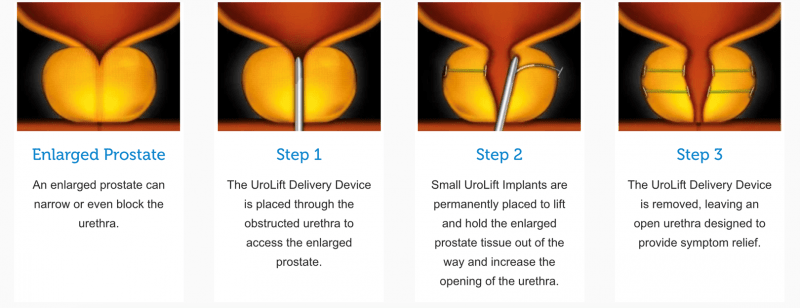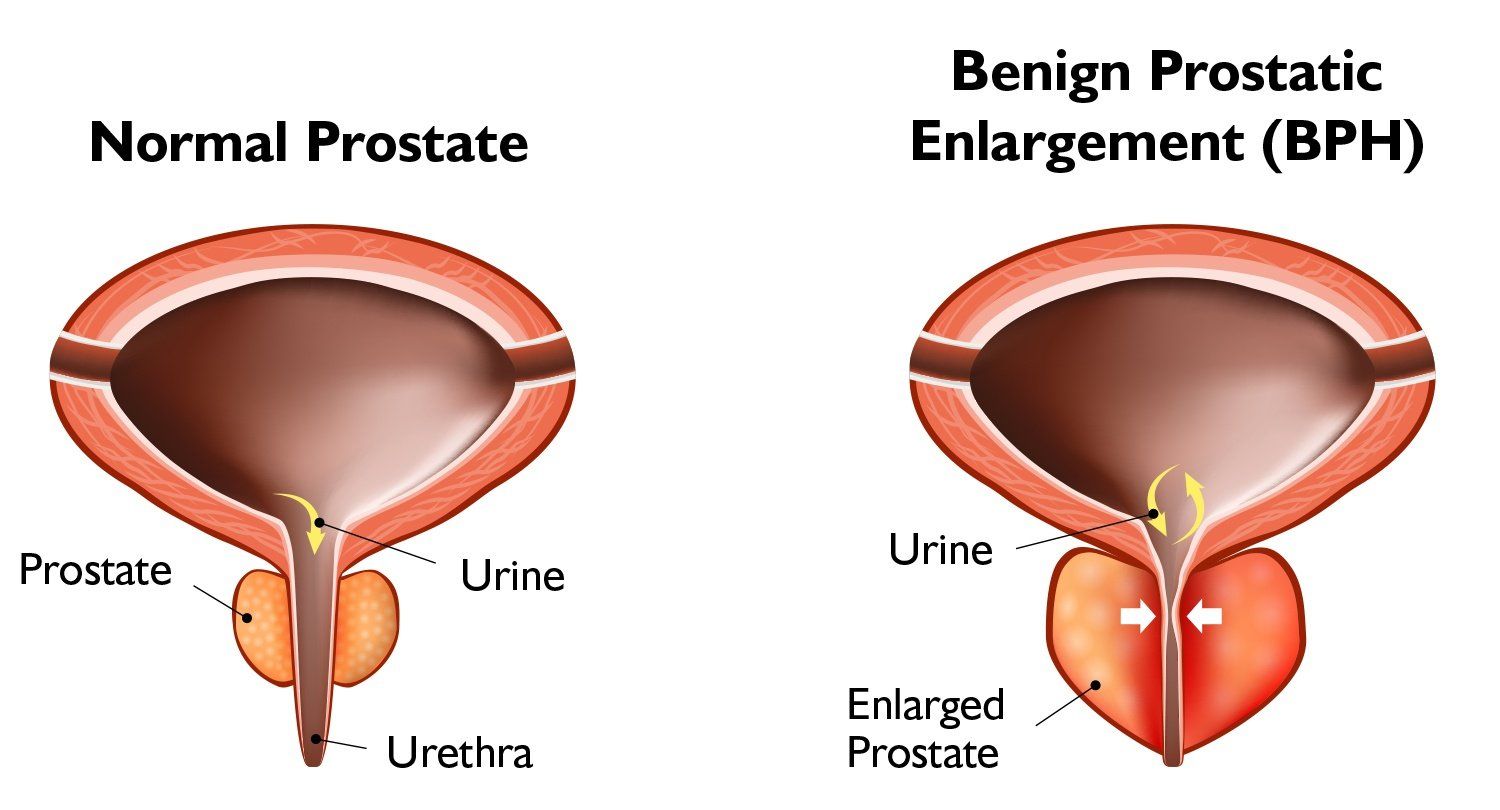UroLift®
UroLift®
The UroLift® System Treatment
The proven, minimally invasive treatment that fills the gap between prescription medications and more invasive surgical procedures.
What is the UroLift System?
Advantages of the UroLift System
How Does The UroLift® System Work?

*No instances of new, sustained erectile or ejaculatory dysfunction in the L.I.F.T. pivotal study
**When medical criteria are met
Indicated for the treatment of symptoms of an enlarged prostate up to 100 cc in men 45 years or older. As with any medical procedure, individual results may vary. Most common side effects are temporary and include pain or burning with urination, blood in the urine, pelvic pain, urgent need to urinate, and/or the inability to control the urge.4 Rare side effects, including bleeding and infection, may lead to a serious outcome and may require intervention. Speak with your doctor to determine if you may be a candidate.
Understanding the Importance of Your Prostate
Many men do not understand what their prostate does and how it can impact their lives. The prostate is a small gland that is about the size and shape of a walnut that is located below the neck of the bladder. The urethra runs through the center of your prostate, from the bladder through the penis, letting urine flow out of the body.
Your prostate is a male reproductive organ. The main function of your prostate is to produce prostatic fluid. The prostatic fluid is an alkaline fluid secreted by the prostate gland during ejaculation that forms part of the semen.
Your prostate can become larger as you age, and usually begins to grow around the age of 40-50, this is a normal part of aging. Eventually, this growth can lead to Benign Prostatic Hyperplasia, better known as BPH.
What is BPH?
Benign Prostatic Hyperplasia, or BPH, is a condition in which the prostate enlarges as men get older. BPH is a very common condition that affects nearly 40 million Americans and over 500 million aging men worldwide. Over 40% of men in their 50s and over 70% of men in their 60s have BPH1. While BPH is a benign condition and unrelated to prostate cancer, it can greatly affect a man’s quality of life.
As the prostate enlarges, it presses on and blocks the urethra, causing bothersome urinary symptoms such as:
- Frequent need to urinate both day and night
- Weak or slow urinary stream
- A sense that you cannot completely empty your bladder
- Difficulty or delay in starting urination
- Urgent feeling of needing to urinate
- A urinary stream that stops and starts
If you suffer from the above symptoms, you are not alone. BPH is the leading reason men visit a urologist².

References
- Shore, Can J Urol 2014
- Roehrborn, Can J Urol 2017
- Sonksen, EU Urol, 2015
- Roehrborn, J Urology 2013
- AUA BPH Guidelines 2003, 2020
- McVary, J Sex Med 2016
